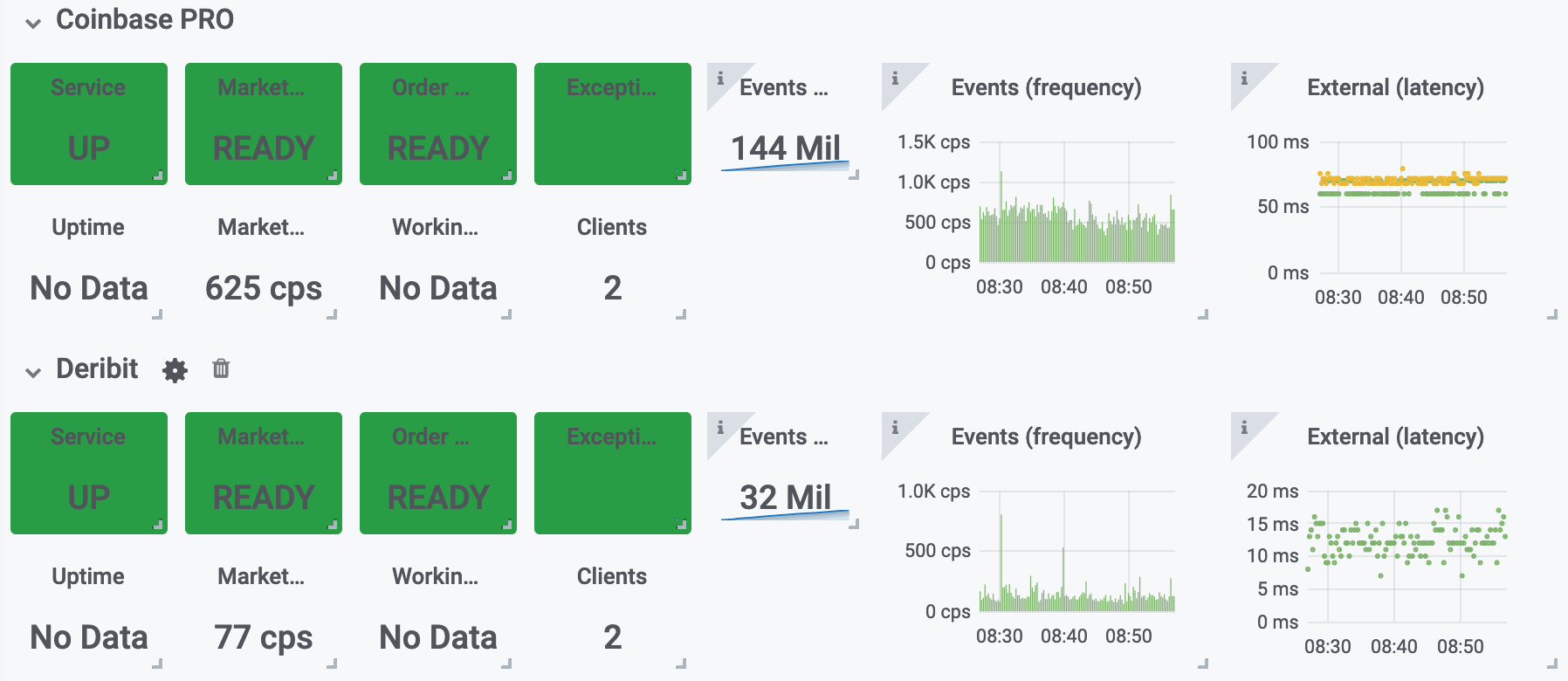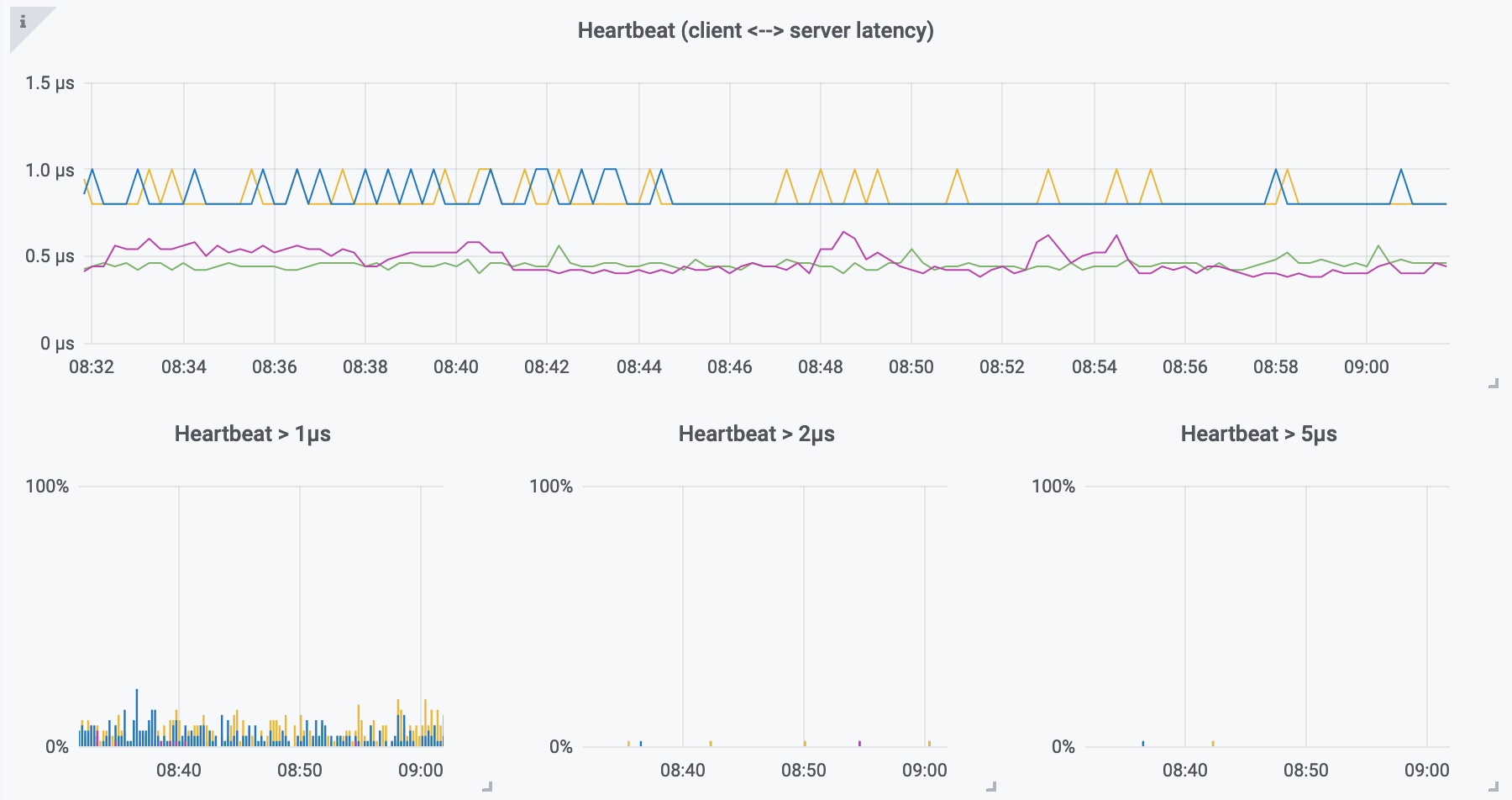A C++ HFT Toolkit for Algo Traders
The API used to communicate between clients (the implementation of your trading strategy) and other components developed by Roq, e.g. market gateways.
An open sourced API motivated by
- No requirement to sign a NDA
- Anyone should be able to implement solutions against the interface
Closed source solutions include
roq-coinbase-promarket gatewayroq-deribitmarket gatewayroq-clientlibrary
- Low latency communication between trading strategy and market gateways
- Simulation framework, including FIFO order matching
roq-influxdbexporterSome solutions are free to use, e.g.
roq-clientandroq-influxdb. Other solutions will require you to enter a license agreement, e.g.roq-coinbase-proandroq-deribit.
The API is not very useful by itself.
You will need an implementation of the interface,
such as the roq-client library.
You will not achieve anything by compiling this project.
Instead, head over to
Roq Samples
and follow the instrutions there to install roq-client
and get started with compiling your own projects.
- Ultra low latency (single digit microsecond response time)
- Very high message throughput
- Messages communicated to clients using a broadcast (publish once) design
- Automatic connection and download management
- Message normalization
- Market data (L1, L2, trade summary, session/daily statistics, etc).
- Order management (create, modify, cancel, ack, update, trade)
- Positions and funds (when available)
- Automatically persist all messages to storage device (zero latency impact)
- Integrate well with popular network kernel-bypass solutions (using epoll)
- Suitable for fully autonomous algorithmic trading
- C++17
- Linux (RHEL, CentOS, Debian, Ubuntu)
- Same-host deployment
- Shared memory for communication
- Micro-service design
- Busy polling causing 100% CPU usage
- Use of CPU isolation and thread affinity, disable hyperthreading, are all strongly recommended practices
- Enough CPU cores to support your use-case
These are some of our solutions
roq-client- Low latency client-server communication
- Simulation framework, including FIFO order matching
roq-coinbase-pro- Market gateway
- FIX, WebSocket and REST
roq-deribit- Market gateway
- FIX and WebSocket
roq-influxdb- InfluxDB exporter
roq-ansible- Server provisioning using Ansible
- Gateway configuration
roq-client-template- Ansible Playbook (using
roq-ansible)
- Ansible Playbook (using
roq-vagrant- Deployment using Vagrant and VirtualBox
roq-grafana- Grafana dashboards
roq-simulator- Market gateway simulator
roq-benchmark- Performance testing
This is not a comprehensive description of the design. For that we refer to the online documentation (see link below).
The following examples have been tested on a relatively low-powered AMD EPYC 3251 SoC running at 2.5 GHz with hyperthreading disabled. Linux is Ubuntu Server 18.04 LTS with the
isolcpuskernel parameter set.
The Grafana example dashboard allows you to easily monitor the performance of the gateways.
This is the heartbeat latency between gateways and connected clients.
When hovering, you'll be able to see the attributes of each measurement
We collect a histogram of the measurements. This allows us to visualize e.g. "how many % of the events exceed 5 microseconds" (the tail distribution).
NUMA configuration and thread affinity affects latency. This example shows there are two distinct latencies depending on the deployment.
The gateways will automatically collect profiling information.
When hovering, you'll be able to see the the "cost" of each operation
The cost of processing JSON updates (
ws_l2update) is about 2x that of processing FIX (market_data_incremental_refresh).





